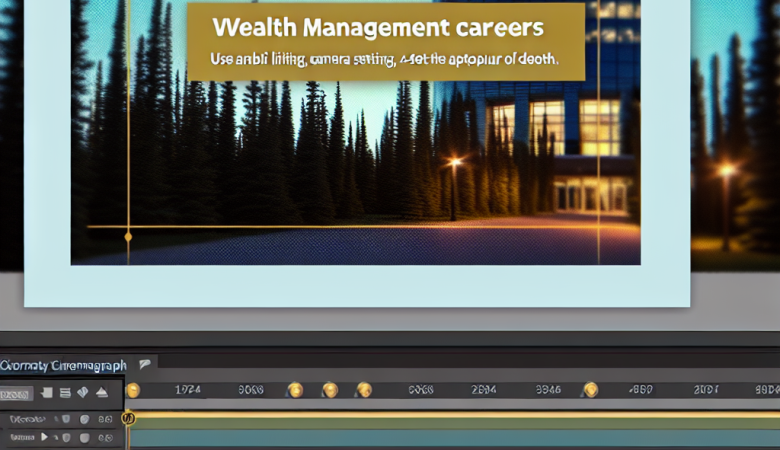Exploring Different Career Paths: A Guide for University Graduates
University to Work-Life Transition: Finding Your Dream Career
As university graduates, we often find ourselves at a crossroads, unsure of which career path to pursue. The transition from the academic world to the professional realm can be daunting, but with the right guidance and exploration, we can find our dream career. In this guide, we will explore different career paths and provide valuable insights to help university graduates navigate this crucial phase of their lives.
One of the first steps in finding your dream career is self-reflection. Take the time to assess your skills, interests, and values. What are you passionate about? What are your strengths? Understanding yourself will help you identify the career paths that align with your goals and aspirations. It’s important to remember that your dream career may not be the most popular or lucrative one, but it should be something that brings you fulfillment and satisfaction.
Once you have a clear understanding of yourself, it’s time to explore different career paths. Research various industries and job roles that interest you. Attend career fairs, networking events, and informational interviews to gain insights from professionals already working in those fields. This will give you a realistic view of what each career entails and help you make informed decisions.
While exploring different career paths, it’s crucial to keep an open mind. Don’t limit yourself to what you studied in university. Many graduates find success and happiness in careers that are unrelated to their majors. Transferable skills, such as communication, problem-solving, and leadership, can be applied to various industries. Consider internships or entry-level positions in different fields to gain practical experience and determine if they align with your interests and goals.
Networking plays a vital role in finding your dream career. Connect with professionals in your desired industry through LinkedIn, alumni networks, or industry-specific events. Building relationships with people already established in your chosen field can provide valuable insights, mentorship opportunities, and potential job leads. Don’t be afraid to reach out and ask for advice or informational interviews. Most professionals are willing to help and share their experiences.
Another important aspect of the university to work-life transition is gaining relevant experience. Employers often value practical skills and experience over academic qualifications. Consider volunteering, freelancing, or taking on part-time jobs to build your resume and develop the necessary skills for your dream career. These experiences will not only enhance your employability but also give you a taste of what it’s like to work in different industries.
As you explore different career paths, it’s essential to set realistic goals and expectations. Finding your dream career may not happen overnight. It requires patience, perseverance, and continuous learning. Embrace failures and setbacks as learning opportunities, and use them to refine your career goals. Remember that success is a journey, and each step you take brings you closer to your dream career.
In conclusion, the university to work-life transition can be challenging, but with the right approach, it can also be an exciting and fulfilling journey. By reflecting on your skills and interests, exploring different career paths, networking, gaining relevant experience, and setting realistic goals, you can find your dream career. Remember, it’s never too late to change paths or pursue your passions. Embrace the opportunities that come your way, and trust in your abilities to create a successful and fulfilling work-life.
Navigating the Job Market: Tips for a Successful Transition from University to Work
University to Work-Life Transition: Finding Your Dream Career
Transitioning from university to the professional world can be an exciting yet daunting experience. After years of studying and preparing for your future, it’s finally time to put your knowledge and skills to the test. Navigating the job market can be challenging, but with the right mindset and strategies, you can make a successful transition and find your dream career.
One of the first steps in navigating the job market is to identify your career goals and aspirations. Take some time to reflect on what you truly enjoy and what you excel at. Consider your passions, interests, and values. This self-reflection will help you narrow down your options and focus on industries and roles that align with your strengths and values.
Once you have a clear idea of your career goals, it’s time to start researching the job market. Look for industries and companies that are in line with your interests and values. Explore job boards, company websites, and professional networking platforms to get a sense of the opportunities available. Pay attention to the skills and qualifications required for the positions you’re interested in, as this will help you tailor your resume and cover letter later on.
Networking is a crucial aspect of navigating the job market. Reach out to professionals in your desired field and ask for informational interviews or mentorship opportunities. Attend career fairs, industry events, and alumni gatherings to expand your network. Building relationships with professionals in your field can provide valuable insights, advice, and potential job leads.
As you start applying for jobs, it’s important to tailor your resume and cover letter to each position you’re interested in. Highlight relevant coursework, internships, and extracurricular activities that demonstrate your skills and experience. Use action verbs and quantify your achievements whenever possible. A well-crafted resume and cover letter will make you stand out from the competition and increase your chances of landing an interview.
Preparing for interviews is another crucial step in the job market navigation process. Research the company and the role you’re applying for. Familiarize yourself with common interview questions and practice your responses. Showcase your knowledge of the industry and your enthusiasm for the position. Dress professionally and arrive early for the interview. Remember to follow up with a thank-you note after the interview to express your gratitude and reiterate your interest in the position.
During the job search process, it’s important to stay positive and resilient. Rejections are a part of the journey, but they should not discourage you. Learn from each experience and use it as an opportunity for growth. Seek feedback whenever possible and make adjustments to your approach if needed. Remember that finding your dream career takes time and perseverance.
Once you land a job, the transition from university to work-life begins. It’s important to adapt to the new environment and establish a routine. Be open to learning from your colleagues and supervisors. Take advantage of any training or professional development opportunities offered by your employer. Set goals for yourself and continuously strive for improvement.
Finding your dream career is a journey that requires self-reflection, research, networking, and perseverance. By identifying your career goals, researching the job market, networking with professionals, tailoring your application materials, preparing for interviews, and staying positive throughout the process, you can successfully navigate the job market and find a career that brings you fulfillment and satisfaction. Remember, the transition from university to work-life is an exciting chapter in your life, and with the right mindset and strategies, you can make it a successful one.
Building a Strong Professional Network: Key Strategies for Career Development
__WPAICG_IMAGE__
Building a Strong Professional Network: Key Strategies for Career Development
In today’s competitive job market, building a strong professional network is essential for career development. A robust network can open doors to new opportunities, provide valuable insights, and help you navigate the transition from university to the working world. In this article, we will explore key strategies for building a strong professional network that can propel your career forward.
First and foremost, it is important to recognize that networking is not just about collecting business cards or connecting with people on social media. It is about building genuine relationships based on mutual trust and support. One effective strategy is to start networking while you are still in university. Attend career fairs, industry events, and alumni gatherings to meet professionals in your field of interest. Engage in meaningful conversations, ask thoughtful questions, and show genuine interest in others’ experiences. These initial connections can lay the foundation for a strong professional network.
Another key strategy is to leverage the power of social media platforms such as LinkedIn. Create a compelling profile that highlights your skills, experiences, and career aspirations. Connect with professionals in your field and join relevant industry groups. Engage in discussions, share valuable content, and contribute to the community. By actively participating in online conversations, you can establish yourself as a knowledgeable and engaged professional, attracting the attention of potential mentors and employers.
In addition to online networking, it is crucial to cultivate relationships offline as well. Attend industry conferences, seminars, and workshops to meet professionals face-to-face. Take advantage of these opportunities to introduce yourself, exchange business cards, and follow up with personalized emails or LinkedIn messages. Remember, networking is not a one-time event but an ongoing process. Nurture your connections by staying in touch, offering assistance, and providing value whenever possible.
Furthermore, seeking out mentorship can greatly enhance your professional network. A mentor is someone who can offer guidance, share their experiences, and provide valuable insights into your chosen field. Look for professionals who have achieved success in your desired career path and reach out to them. Be clear about your goals and what you hope to gain from the mentorship. Remember, mentorship is a two-way street. Show gratitude for their time and expertise, and be willing to reciprocate by offering your own skills or knowledge.
Lastly, don’t underestimate the power of informational interviews. Reach out to professionals in your field and request a brief meeting to learn more about their career journey and gain industry insights. Prepare thoughtful questions and show genuine curiosity. Not only can informational interviews provide valuable information, but they can also help you expand your network by connecting you with other professionals in the field.
In conclusion, building a strong professional network is crucial for career development, especially during the transition from university to the working world. By starting early, leveraging social media, attending industry events, seeking mentorship, and conducting informational interviews, you can establish a robust network that will support your career growth. Remember, networking is not just about collecting contacts; it is about building genuine relationships based on trust and mutual support. So, invest time and effort in nurturing your network, and you will reap the rewards throughout your professional journey.
Mastering the Art of Resume Writing: Crafting a Standout CV for Your Dream Career
Mastering the Art of Resume Writing: Crafting a Standout CV for Your Dream Career
In today’s competitive job market, having a standout resume is essential for landing your dream career. Your resume is often the first impression employers have of you, so it’s crucial to make it count. Crafting a standout CV requires careful attention to detail and a strategic approach. In this article, we will explore some key tips and strategies to help you master the art of resume writing.
First and foremost, it’s important to tailor your resume to the specific job you’re applying for. Generic resumes that lack focus are unlikely to catch the attention of employers. Take the time to carefully read the job description and identify the key skills and qualifications they are looking for. Then, highlight these skills and qualifications in your resume, making sure to provide specific examples of how you have demonstrated them in your previous experiences.
Another crucial aspect of crafting a standout CV is organizing your information in a clear and concise manner. Employers often receive hundreds of resumes for a single position, so they appreciate resumes that are easy to read and navigate. Use bullet points to list your accomplishments and responsibilities, and keep your sentences short and to the point. Avoid using jargon or overly technical language that may confuse the reader.
In addition to organizing your information effectively, it’s important to pay attention to the overall design and layout of your resume. While it’s tempting to use fancy fonts or colors to make your resume stand out, it’s best to stick with a clean and professional design. Use a standard font such as Arial or Times New Roman, and keep the font size between 10 and 12 points. Use headings and subheadings to clearly separate different sections of your resume, such as education, work experience, and skills.
When it comes to listing your work experience, focus on highlighting your accomplishments rather than just listing your responsibilities. Employers are interested in what you have achieved in your previous roles, so be sure to quantify your accomplishments whenever possible. For example, instead of saying “Managed a team of employees,” you could say “Managed a team of 10 employees, resulting in a 20% increase in productivity.”
In addition to your work experience, be sure to include any relevant skills or certifications you have acquired. This could include technical skills, such as proficiency in a specific software program, or soft skills, such as strong communication or leadership abilities. Including these skills will demonstrate to employers that you have the necessary qualifications to excel in the role.
Finally, don’t forget to proofread your resume carefully before submitting it. Spelling and grammatical errors can make a negative impression on employers, so take the time to review your resume for any mistakes. Consider asking a friend or family member to review it as well, as they may catch errors that you have missed.
Crafting a standout CV is a crucial step in the university to work-life transition. By tailoring your resume to the specific job you’re applying for, organizing your information effectively, and highlighting your accomplishments, you can increase your chances of landing your dream career. Remember to pay attention to the design and layout of your resume, and proofread it carefully before submitting. With these tips and strategies, you’ll be well on your way to crafting a standout CV that will impress employers and help you achieve your career goals.
Overcoming Challenges in the Transition from University to Work: Strategies for Success
The transition from university to the working world can be a challenging and overwhelming experience for many graduates. After years of studying and preparing for exams, suddenly finding oneself in a professional setting can feel like a whole new world. However, with the right strategies and mindset, this transition can be a smooth and successful one.
One of the biggest challenges that graduates face when transitioning from university to work is finding their dream career. Many students enter university with a clear idea of what they want to do after graduation, only to realize that their interests and goals have changed over the course of their studies. This can be a daunting realization, as it may feel like starting from scratch in terms of career exploration.
To overcome this challenge, it is important for graduates to take the time to reflect on their interests, values, and skills. What are they passionate about? What are their strengths? What kind of work environment do they thrive in? By answering these questions, graduates can gain a better understanding of what they are looking for in a career and can start exploring different options that align with their interests and goals.
Another challenge that graduates often face in the transition from university to work is the lack of practical experience. While university provides a solid theoretical foundation, it may not always prepare students for the realities of the working world. This can make it difficult for graduates to compete with candidates who have already gained practical experience through internships or part-time jobs.
To overcome this challenge, graduates can seek out opportunities to gain practical experience while still in university. This can include internships, co-op programs, or volunteering in their field of interest. By gaining hands-on experience, graduates can not only enhance their resumes but also gain a better understanding of what it is like to work in their chosen field.
Networking is another crucial aspect of the transition from university to work. Many job opportunities are not advertised publicly and are instead filled through personal connections. This can put graduates at a disadvantage if they do not have a strong network of professionals in their field.
To overcome this challenge, graduates should take advantage of networking opportunities both within and outside of their university. Attending career fairs, joining professional organizations, and reaching out to alumni are all great ways to expand one’s network. Building relationships with professionals in their field can not only lead to job opportunities but also provide valuable insights and advice.
Finally, it is important for graduates to be patient and persistent in their job search. Finding the perfect job takes time and effort, and rejection is a common part of the process. It is important for graduates to stay positive and keep pushing forward, even in the face of setbacks.
In conclusion, the transition from university to the working world can be challenging, but with the right strategies and mindset, it can also be a rewarding and successful experience. By taking the time to reflect on their interests and goals, gaining practical experience, networking, and staying persistent, graduates can overcome the challenges they face and find their dream career.






Leave a Reply
You must be logged in to post a comment.